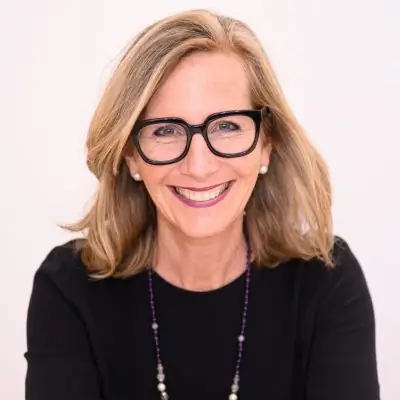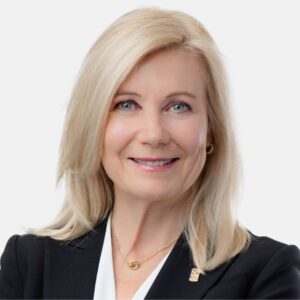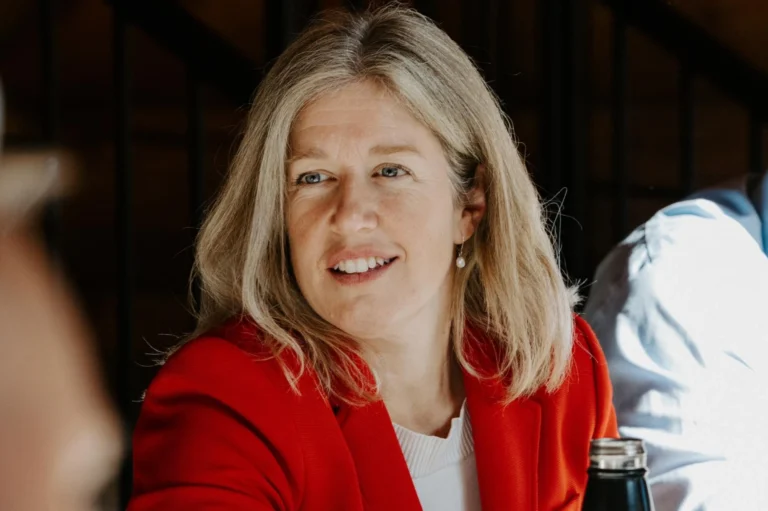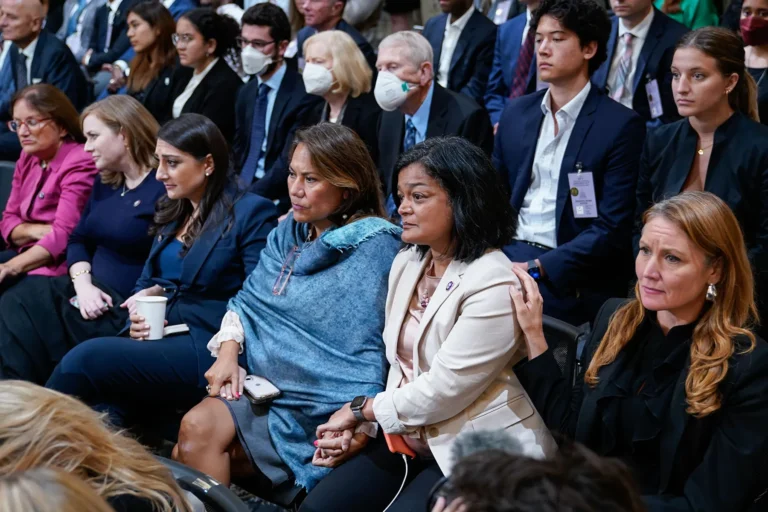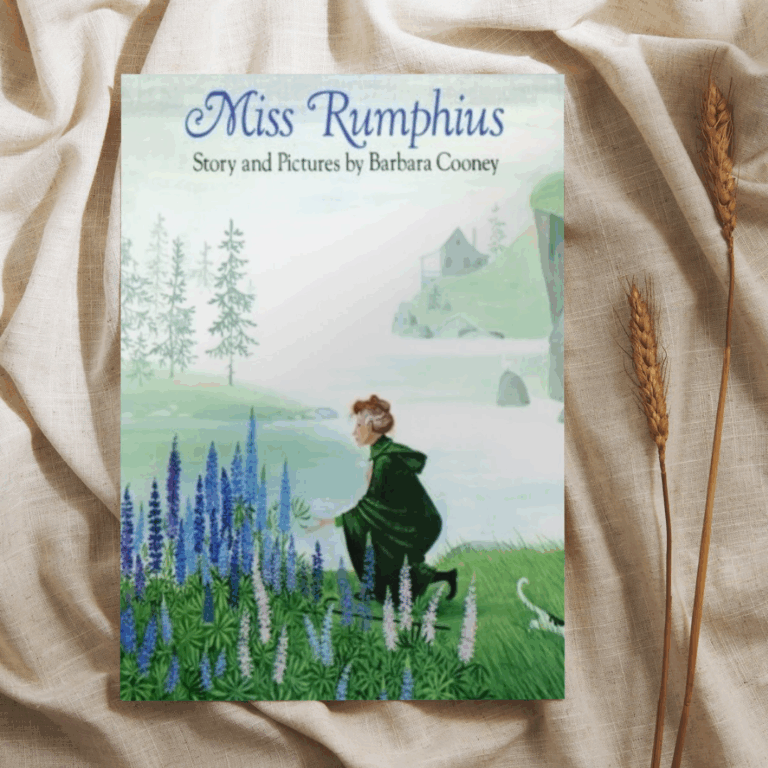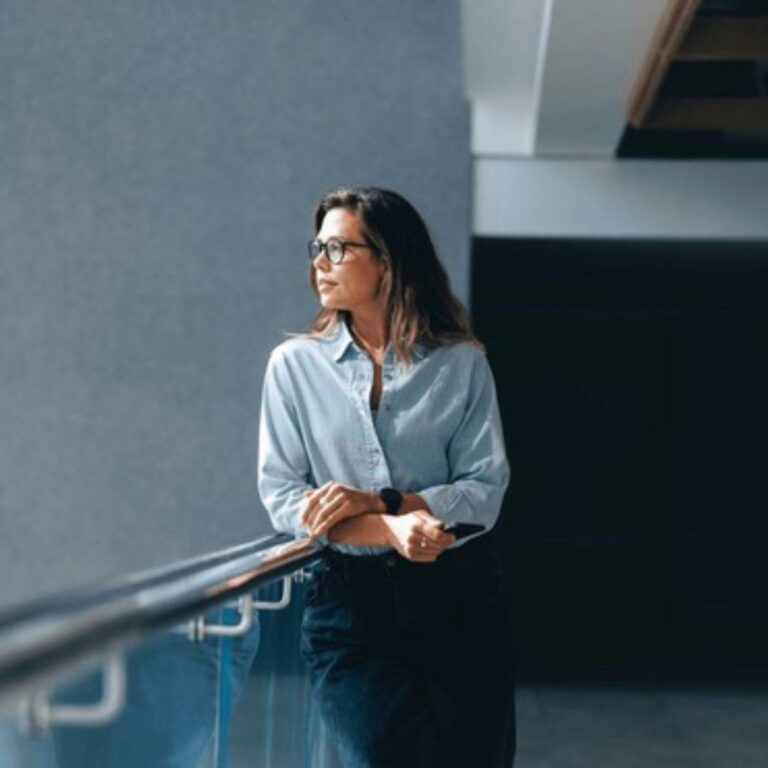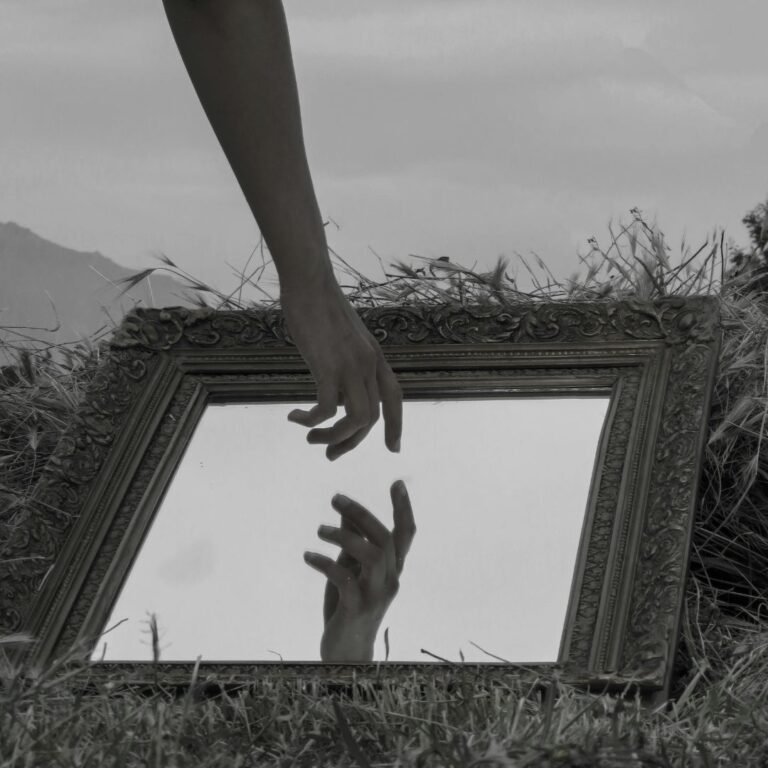Shachi Kurl – Sharing opinions & shaping knowledge as President of Angus Reid Institute
Shachi Kurl is President of the Angus Reid Institute, Canada’s non-profit foundation committed to independent research, and an award-winning journalist. She is often found on television, radio, and in print offering analysis of current events and news taking place in Canada and across the globe.
Shachi joins us on The Honest Talk to discuss her career path, her personal journey, tokenism, leaving a legacy, and her advice to other people looking to change their career paths.
Note: This transcript has been edited for clarity and length.
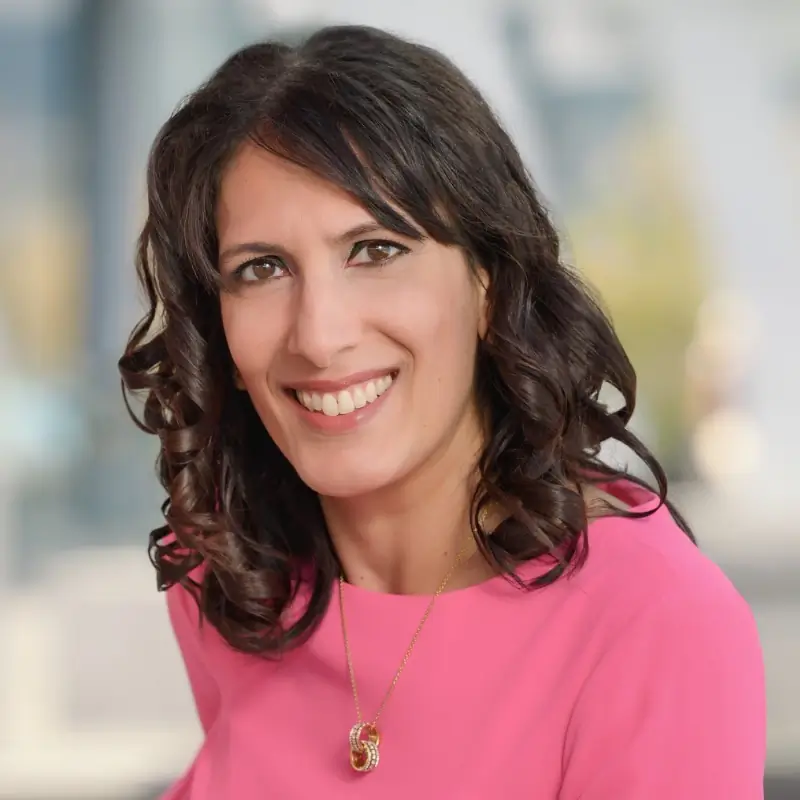
How seasonal allergies brought her parents to Canada
Catherine Clark: Shachi, your parents are originally from India. You say that most people come to Canada to flee unrest or persecution; your parents came because of your dad’s seasonal allergies. Can you tell us about that?
Shachi Kurl: Vancouver became the home free from seasonal allergies and why we ended up settling here. My parents were born in India, spent their youth, their young adulthood there, were educated there, had an arranged marriage. My dad, through a fellowship, was able to study in the United Kingdom. Of course, in those days everyone wanted to settle in America. They spent some time in Michigan and in Ohio. He and ragweed did not get along and an American dream turned into a bit of an American nightmare. They got to Vancouver through academia — my dad was at UBC — and they got to the ocean and my dad could breathe. That was pretty fundamental and pretty important. And, of course, in many ways, it was the beginning of a new story, but I don’t know how that story would have unfolded had we landed somewhere else first.
How did being the child of immigrants impact early life
Jennifer Stewart: How did being the child of immigrants impact your early life?
Shachi Kurl: Not only did it impact my early life, it impacted my middle life, my current life, my everyday life. There was so much emphasis, early on, on two things. One was the story of assimilation. The focus was very much on fit in, learn English first, try to learn some French first. They didn’t get around to trying to teach us Hindi until much later on, to the point where I can speak it quite fluently, I can understand it, but I can’t read it or write it.
But then there was so much cultural and spiritual grounding around “this is why we pray the way we pray, or this is why we celebrate the things that we celebrate, or this is why we eat the foods we eat, or this is why we’re vegetarian.” And just always trying to explain the differences between how we existed in the microcosm of our household, and how sometimes that looked and felt different relative to how we existed other places: how my parents existed at their workplaces, how I existed at school.
I remember my mom being such a tremendous advocate in those early years around trying to build bridges within our little subdivision. We were the only brown family on a largely German Mennonite street. I’m in a church basement at the age of three going, “I do not understand what is going on but these people seem nice and I get a popsicle at the end so it’s all good.” But you know, she joined the Bible group in the neighborhood to sort of make friends and break the ice, so to speak. And if I was invited to a birthday party, she was upfront with the moms very quickly, like, my child cannot eat the hot dogs. And these were the days before plant-based anything. So, she would either bring something or the moms would accommodate, but I was always very aware of the differences. I wouldn’t say I was ashamed of or struggled as much with the differences because I think there was just so much pre-work done by my parents.
Journalism as a first career
Catherine Clark: Your parents seem like really remarkable people. And they persevered. They seem to jump right into new opportunities and challenges. How did they react when you decided that you were going to pursue a career as a journalist?
Shachi Kurl: My parents are remarkable people — what good daughter would say that their parents are not remarkable? — but they really are. Did my parents hope that one of us would become a doctor or a lawyer or an accountant? Absolutely. But there was also, I think, a recognition that if you’re going to do something, then you just have to work the hardest and be the best at that.
They said, “Okay, we want to support you. But you are going to Carleton, you are getting the degree, and you are going to work the hardest at that and really double down into that.” And they were incredibly supportive in the years after graduation, too. I worked as a casual and a contract worker and a gig worker for so long. And, you know, living at home, it wasn’t always easy, but there was no other way to move out or pay rent. And my folks at that point could have at any time said, “Look, man, get a real job.” But they didn’t. They stuck with it. And they stuck with me.
Jennifer Stewart: I love that because as a parent, at the end of the day, you just want to see your kids happy. So whatever path that is, as long as it’s ethical and it’s paying the bills, it’s a great thing. Your first career was as a journalist; what did that industry teach you about society and also about yourself?
Shachi Kurl: One of the enduring things that I will always take away from my time as a journalist was how willing people were to be open and share their stories at some of their most vulnerable moments. I ended my career and had some of the happiest and most successful times in my career as a political journalist covering the B.C. legislature out of Victoria, covering B.C. politics. It took a while to get into that and to establish myself in that, and for many years I was a general assignment reporter. And sometimes general assignment means showing up at the car crash or showing up at the house of the family whose loved one has been killed in an untimely way or murdered or something worse. And for a while, my assignment desk made me the door-knock person which is actually pretty soul destroying.
I have run off of people’s lawns before, but also I’ve been invited in and had people in their most vulnerable and raw moments just want to share.
I remember going into the home of a single mom in a basement apartment trying to make ends meet and the story would be around housing affordability — gosh, everything old is new again — and just affordability in general and saying, “I don’t know how I’m going to get my kids back to school with all the stuff they’re supposed to buy.” And I’m thinking, the courage and the openness to let a total stranger come into your house, turn on a camera, stick a light and a microphone in your face, and tell that story so personally — I am always awed by the gift that people in our society give us in being willing to open up in that way. I was gobsmacked by it.
Advice for women who want to change their lives
Catherine Clark: You’ve just described the early part of your career in journalism. You also have touched on the fact that you were a noted political reporter at the B.C. legislature, and then you made the choice to transition out of journalism. I have to imagine that that was a pretty significant life moment. A lot of our listeners are women who are contemplating change in their own professional or personal lives. What advice do you have for them based on the experience that you lived through the choices you made?
Shachi Kurl: It was a journey, and it took some years to really come to terms with not being a journalist anymore when your identity is so caught up in that. I wanted to be a journalist from the time I was, like, 11 or 12 years old, and then I got to go do that. But I also lived through maybe three or four rounds of newsroom layoffs. It wasn’t healthy. And more than that, I could see the way that the industry was going. Did I want to keep doing that for a year? Absolutely. Very happily. Did I want to keep doing it for six years with no change, no growth, no opportunity for advancement? Maybe not. Did I want to do it for 10 years, and then find myself carrying a layoff box outside of a newsroom and having no plan? I definitely did not want to do that.
So, another opportunity arose and with a very heavy heart, I took it. I felt like it was a breakup, I felt like journalism was breaking up with me. I loved it but it didn’t love me back enough to show me a full career path. At least I could manage my own exit if nothing else, but I could not watch TV newscasts for a year after that. It was just too raw, it was too painful.
But the things that I learned around that were really threefold: know your worth, know when to say no, and know when to say yes and take a chance and be open to the universe. I have this mentor who said, “Shachi, you really just have to be open to what else is out there.” And I said, “Okay, I’m just going to let it all come in and see what pops.” And so, through this time I’m trying to get promotions, I’m trying to get back to a bigger news market, I’m trying to get an advancement, job-wise, and people are like, “Oh, you can come and work weekends, we have this mat leave you can cover.” I’d been in this business for more than 10 years so, no, I’m not going to do that. And for me, that was: know your worth and know when to say no. And then when another opportunity arose, know when to say yes. I don’t have any particular talents, but I do feel like I have had good instincts around when to know to jump, even if it feels like you really are jumping off the high diving board. And I’ve done that a couple of times and it’s worked out.
Jennifer Stewart: What have you said yes to that’s really changed your life?
Shachi Kurl: I said yes to a career path outside of journalism, which was life changing. I said yes to taking on the polling program when I was working with Dr. Angus Reid. He’s a real person, he’s, like, the grandpapa of polling in Canada. We moved to a not-for-profit model and started the institute back in 2014, but he started his business in the late ‘70s. He’s kind of a household name, but I don’t think people actually realize he is a person, and we talk several times a day. Working with him, being mentored by him, and having really wonderful mentors, both men and women in and outside journalism, in and outside of public policy — if you are lucky to be blessed with people that you can turn to and whose shoulders figuratively or literally, depending on where you’re at pandemic-wise, you can just lean on when you have moments of doubt or moments of vulnerability or when you really just want to work something out strategically or just learn from, it’s such a gift. And one of the things I tried to do is take time for people, younger people who are coming up now, because I’m so alive to the fact that people gave me and continue to give me so much time as I go.
If you are lucky to be blessed with people that you can turn to and whose shoulders figuratively or literally, depending on where you’re at pandemic-wise, you can just lean on when you have moments of doubt or moments of vulnerability or when you really just want to work something out strategically or just learn from, it’s such a gift.
Shachi Kurl
Approaching good and tough times
Catherine Clark: So, we all face great times in our lives and then we also face the tough moments too. That’s just the natural cycle of life. How do you approach the good times? And how do you approach the tough times?
Shachi Kurl: So, the good times, I think it’s really important to remember to enjoy them, savour them, let them wash over you, because they won’t last. And that’s not being fatalistic. My dad has always said to me, “Nothing lasts forever, the good times don’t last forever, the bad times don’t last forever.” And I think that’s just been a very important thing to try to remember, that things are cyclical, there are highs, there are lows. And so, when you’re having the good moments, just really internalize them, try to bottle them, because they will be what you lean on when it feels like times are at their blackest, and there is no escape, and there is no light at the end of the tunnel. That doesn’t last forever, either.
Jennifer Stewart: We’ve come a long way, as a society, when it comes to issues of diversity, equity, and inclusion, but we still have a long way to go. Have you faced gender or other discrimination in your career or your life? And how did you handle it?
Shachi Kurl: I have. Who among us who has a background like mine, who is a woman or who is a person of colour, hasn’t? But in my younger years, I was such a goofball about it I think half the time I didn’t even realize it was happening. At least in my case, it wasn’t overt. When we talk about privilege, I recognize that growing up without an accent, growing up with lighter skin than other people who are South Asian have, maybe I had a slightly easier time of things. But at the same time, going back to some of the things that I learned early on, like fit in, assimilate, keep your elbows up, just try really hard, keep on going, I think sometimes I was blind to moments like that.
I have (faced discrimination). Who among us who has a background like mine, who is a woman or who is a person of colour, hasn’t?
Shachi Kurl
I would say that relative to Black people, Indigenous people, people who are East Asian or South Asian, who are dealing with really overt, gross, horrible, unacceptable, institutional, terrible things that we unfortunately see daily proof of, there was never anything like that for me. I always feel like it was a lot more subtle. There was a sense, particularly in my early career, of chronic tokenism: you’re here because you tick boxes. And as you get deeper and further up a path or up a ladder, the thing you’re more alive to is you are often the only person in a boardroom or in a meeting or in a professional environment that looks like you and has the same lived experience as you do. It’s not like it was this overt oppression, it’s just been more subtle. And the isolation of being the only one who has that world view or has that same lived experience and no one else gets it, and now you have both the responsibility and the desire, but sometimes the burden, of being the person who sticks their hand up and says, “no, that makes no sense, or it’s tone-deaf or insensitive or just not alive to things we should be considering or talking about or making decisions around.”
Jennifer Stewart: How do you want to be remembered?
Shachi Kurl: As someone who had the courage and never backed down from saying or doing the thing that was right, no matter how inconvenient or unpopular it was, I was bullied a lot in elementary and in high school, and that wasn’t a great experience. But it has gotten me to a place in my life now where I don’t really care what the mob says or thinks. It doesn’t mean I can’t take criticism or I’m not open to feedback, but I’m really okay at times wearing the mantle of being ahead of your time, or sometimes being on the wrong side of public opinion or zeitgeist, if it means that ultimately what you did or what you said bore out. And I’ve had those experiences a handful of times in my career, and it just took some folks a little bit longer to get to where I was. I can accept sometimes being a little bit out ahead of the curve, even if it means running into some choppy waters.
(Want to be remembered) as someone who had the courage and never backed down from saying or doing the thing that was right, no matter how inconvenient or unpopular it was, I was bullied a lot in elementary and in high school, and that wasn’t a great experience.
Shachi Kurl

